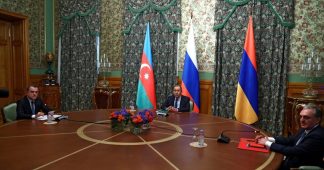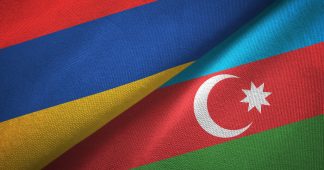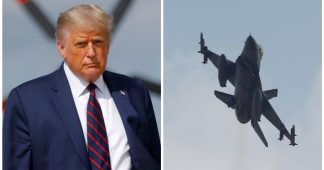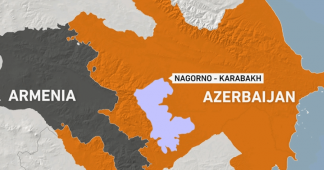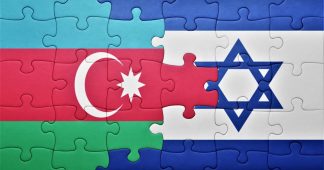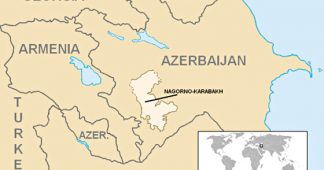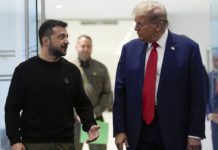Turkey’s Erdogan seems to be doubling down in the Caucasus in search of a victory that might blunt the force of failure everywhere else
By Sayed Abdel-Meguid
14 Oct 2020
Azerbaijan and Armenia declared a truce Saturday, no thanks to Turkey which has been giving Baku all-out political and military support. The ceasefire agreement which was soon violated, was temporary and was for humanitarian reasons.
In fact, Turkish Parliament Speaker Mustafa Sentop called on the government to send Turkish troops to support Azerbaijan. But if Turkish President Recep Tayyip Erdogan thought this earned him a place at the negotiating table in Moscow, he was in for a disappointment. The Kremlin, confident in its influence over both Baku and Yerevan and keen to keep their dispute over Nagorno-Karabakh from spiralling into another international crisis, managed to push the two sides to a ceasefire for “humanitarian purposes”, without help from others.
After drumming up so much public fervour for action against the “occupiers” of a brotherly Turkic people’s land, the Turkish government could not appear to be so inconsequential. So, the state news agency reported that Foreign Minister Mevlut Cavusoglu spoke with his Russian counterpart, Sergei Lavrov, by phone and that Lavrov brought him up to date on the situation in the Caucasus.
Then, Ankara resumed its pro-Azerbaijan propaganda. In a statement released on the day the ceasefire went into effect, the Turkish Foreign Ministry said: “Azerbaijan has proven to Armenia and the world that it is able to regain, on its own, the territory occupied 30 years ago.” Then, as though a self-appointed mouthpiece for Baku, the ministry said: “Azerbaijan has given Yerevan one last chance to withdraw,” adding that Turkey would “support Azerbaijan both on the field of battle and at the negotiating table”.
In the opinion of some quarters of the Turkish opposition, the fiery reaction to the ceasefire was not just pitched to a domestic gallery. It was also a response to the unfavourable mirror the international community was holding up to Ankara, which has been variously accused of stoking tensions over Nagorno-Karabakh, goading Baku to war, providing it with military support and perhaps air cover, and sending in Syrian mercenaries to support Azerbaijani forces. Perhaps this is why Moscow excluded Ankara from the ceasefire negotiations.
For a number of reasons, Turkey sees itself as a key player in Azerbaijan and it resents being sidelined. Now, reports and rumours circulating on the Internet suggest that Anatolian hands are at work to undermine the ceasefire and that Ankara is praying for the Minsk Group, which was formed by the Organisation for Security and Cooperation in Europe (OSCE) in 1992 to find a peaceful solution to the Nagorno-Karabakh conflict, to fail in its renewed efforts to resolve the conflict.
The group “is almost certain to fail if it doesn’t also involve a detailed plan to end the occupation”, said Presidential Spokesman Ibrahim Kalin on Friday. “Yes to a ceasefire, but the ceasefire must be sustainable, and the only way to make it sustainable is to talk about Armenia’s occupation of Azeri land.”
Given Erdogan’s regional ambitions, ideological outlooks and general temperament, he would be less interested in “talk” than in “beating the iron while it’s hot”, especially now that troops are mustered and arms and mercenaries are in place. Why would he prefer the military option on yet another front?
Some analysts believe that with all his foreign policies and interventions crumbling and backfiring in the Eastern Mediterranean, Syria, Libya and elsewhere, and with all the havoc this has wreaked on the Turkish economy, he feels he has no alternative but to escape forward, and the long-simmering Nagorno-Karabakh conflict presented the opportunity.
There, he could claim a much-needed victory by enabling predominantly ethnically Turkic Azerbaijan to reclaim the small Armenian controlled enclave, which would quell the rumbling volcano at home. Or, at the very least, he could deflect public attention from the mounting economic straits which may soon worsen if Washington finally acts on its decision to impose sanctions on Turkey for its purchase and deployment of the Russian S-400 missile system.
It now appears that the US will no longer be able to postpone this step. When the Turkish military started to move the controversial S-400 batteries to a training area near the Black Sea town of Sinop, the Turkish Ambassador in Washington Serdar Kilic, made a point of denying that they were being used to detect Greek F-16s in the Mediterranean. “That is out of the question. Even if [the S-400s] were tested, we, as a member of NATO, would coordinate such action through the alliance’s military channels”, he said during an event organised by the Washington-based World Affairs Councils.
The previous day, US senators Chris Van Hollen (Democrat) and James Lankford (Republican) urged the State Department to introduce sanctions against Turkey for the planned tests of the Russian made S-400s. They expressed concern over reports that Turkey was using the S-400s to detect and track US-made F-16s on their return to their bases following the Eunomia manoeuvres conducted by France, Italy, Greece and Cyprus in late August.
The senators wrote to Secretary of State Mike Pompeo asking about a report concerning Turkish plans to conduct a comprehensive test of the S-400s and noted that Washington’s failure to act more decisively about the S-400 purchase had “emboldened” Ankara. The US has repeatedly cautioned Turkey regarding its purchase and deployment of the Russian made S-400, which is incompatible with NATO defences and which could put the US’s new F-35s at risk.
NATO Secretary General Jens Stoltenberg, during his recent visit to Ankara, said: “We are concerned about the consequences of Turkey’s acquisition of the S-400 system. The system can pose a risk to Allied aircraft and can lead to US sanctions … [T]he S-400 cannot be integrated into NATO’s air and missile defence system. And I urge Turkey to work with other Allies to find alternative solutions.”
According to Yasar Yakis, a former Turkish foreign minister who was also one of the founding members of the ruling Justice and Development Party (AKP), Ankara has come to regret the S-400 deal. It had acted precipitously and subsequent developments showed that it had not fully assessed the strategic consequences of such a dangerous step. They had not taken into consideration at the time that they were making a choice between Moscow and Brussels, he said.
In short, Turkey has painted itself into a corner, and it appears its customary tactical manoeuvring will not be enough to fix the problem. As a CNN headline on 11 October put it, “Turkey’s combative foreign policy could soon reach a dead end.” As one source quoted in the article put it, “the economy is Erdogan’s Achilles heel, not only domestically but also in foreign policy. Not only does the economy determine if Turkey can continue to flex its muscles, but if the economy tanks, Turkey won’t have the budget to devote to all these battles and fronts.”
The EU Executive Commission has recently confirmed this. On 6 October, it said that Turkey’s government was undermining its economy, eroding democracy and destroying independent courts, leaving its bid to join the EU further away than ever.
*A version of this article appears in print in the 15 October, 2020 edition of Al-Ahram Weekly
Published at english.ahram.org.eg/
